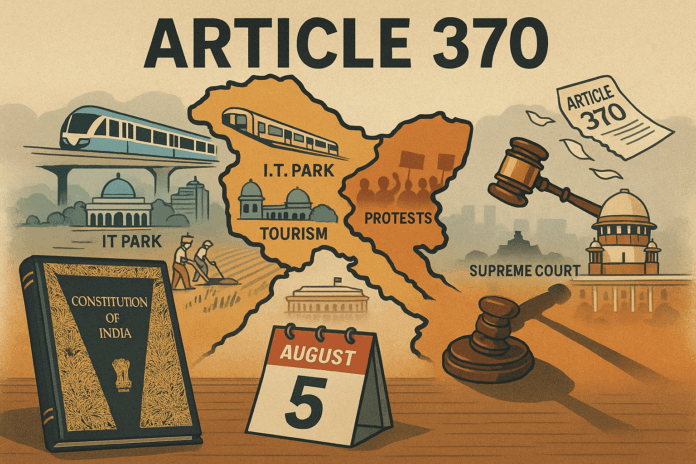August 5, 2019 – The Day That Changed Jammu & Kashmir
In a historic move, the Indian Parliament on August 5, 2019, revoked Article 370, the special constitutional provision that had granted autonomy to Jammu & Kashmir since 1950.
The resolution, introduced by Home Minister Amit Shah, was passed with overwhelming support:
-
Rajya Sabha: 125 in favor, 61 against
-
Lok Sabha: 370 in favor, 70 against
As a result, the former state was bifurcated into two separate Union Territories:
-
Jammu & Kashmir (with legislature)
-
Ladakh (without legislature)
This was more than just a legal reform—it was the restructuring of a region’s relationship with the Indian Union.
Supreme Court Validation – December 11, 2023
A five-judge constitutional bench of the Supreme Court unanimously upheld the government’s decision.
The Court ruled that the revocation of Article 370 was valid, in line with the vision of Dr. B.R. Ambedkar—who dreamed of one nation, one Constitution.
Six Years Later: What Has Changed?
As the sixth anniversary arrives in August 2025, debates resurface:
-
Supreme Court is scheduled to hear a fresh petition on August 8, 2025, seeking the restoration of full statehood to Jammu & Kashmir.
-
The J&K Assembly has passed multiple resolutions, urging the Centre to consider reinstating special status through constitutional dialogue.
Development on the Ground
Since the revocation, the region has witnessed rapid transformation:
-
🏗️ ₹80,000 crore investment inflow
-
🛬 Air connectivity increased from 35 to 125+ daily flights
-
🎓 Establishment of an IIT, IT parks, and improved education access
-
🏞️ Tourism growth and infrastructure upgrades (e.g., Srinagar–Baramulla rail link)
-
💼 Job creation and local business growth
In a symbolic gesture, Lt. Governor Manoj Sinha distributed job letters to 250 families affected by terrorism, showing commitment to healing and rehabilitation.
Mixed Voices: Unity or Betrayal?
The revocation continues to divide public and political opinion:
-
Omar Abdullah, former CM, called the move unconstitutional and politically damaging, pledging continued resistance.
-
On the other hand, some Congress leaders, like Salman Khurshid, acknowledged positive developments and a decline in separatism in the Valley.
PM Narendra Modi and HM Amit Shah have reaffirmed that “Article 370 is history now—it will never return.”
Key Takeaways
| Theme | Highlights |
|---|---|
| 🧾 Legal Change | Article 370 revoked in 2019; upheld by Supreme Court in 2023. |
| 🗺️ Political Shift | J&K split into two UTs: J&K and Ladakh. |
| 🚀 Growth & Reforms | Massive infrastructure, job creation, and tourism expansion. |
| 🗳️ Restoration Demand | Fresh court petition and political calls for statehood. |
| 🔀 Public Reaction | Nation remains divided on whether it was progress or betrayal. |
All eyes are now on the Supreme Court hearing on August 8, 2025.
Will it pave the way for restoring full statehood to Jammu & Kashmir?
Will dialogue between the Centre and Valley-based parties build a new roadmap?
One thing is clear—Article 370’s revocation was not the end of a chapter, but the beginning of a new one.
It’s a story of law, democracy, development, dissent, and the eternal quest for unity in diversity.





